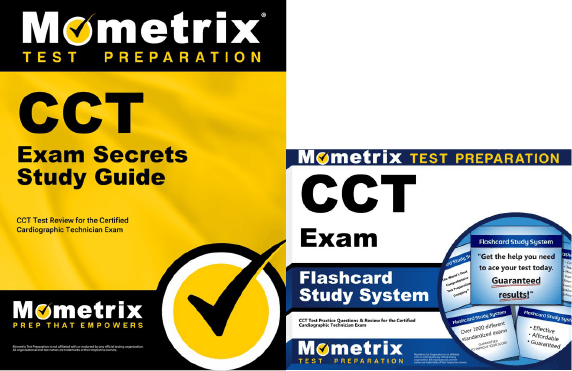If you need help studying for the CCT exam or just want some more information about what the exam is like, you’ve come to the right place.
Click below to take a free CCT practice test!
CCT Exam Eligibility
Before you can register to take the CCT exam, you need to have a high school diploma (or an equivalent) and meet at least ONE of the requirements below:
- You must be currently enrolled as a student or graduate of a cardiovascular or allied health training program.
- You must be currently employed or previously employed in the cardiovascular technology field or a recognized allied health field.
- You must have completed a graduate or undergraduate degree from a recognized institution in a field related to science or physical health.
If you meet one of these requirements, you’re set to begin the registration process!
What’s on the CCT Exam?
First, let’s talk about the questions on the exam. There are 130 multiple-choice questions total, but only 110 of the questions will count toward your score. Why is that?
The 20 unscored questions on the CCT exam are often referred to as “pretest” questions. These are added to the exam to determine if they’re good enough questions to add to future versions of the test.
The trick is that you won’t have any way of knowing which questions are scored and which ones are pretest. They will appear just like the scored questions throughout the test.
The time limit for the exam is 2 hours. There aren’t any scheduled breaks, but you’re free to take restroom breaks as needed.
Let’s take a closer look at the different sections of the CCT exam.
1. CONDUCTING PRE-PROCEDURAL ACTIVITIES
10% of the exam
- Verify physician’s orders
- Verify patient identifiers
- Obtain patient consent
- Apply universal and/or isolation precautions
- Perform patient transfer and transport
- Identify proper anatomical landmarks
- Prepare the patient
- Confirm equipment calibration, maintenance and cleaning
- Identify safety hazards/considerations
- Provide patient education
2. PERFORMING RESTING ECG
39% of the exam
- Gather ECG supplies and equipment
- Troubleshoot while performing ECG
- Perform standard 12-Lead ECG
- Perform modified ECG
- Perform 15-Lead, pediatric ECG
- Recognize axis deviations
- Recognize Bundle Branch Blocks (RBBB/LBBB)
- Identify hypertrophy
- Correlate ECG morphology with anatomy or physiology
- Identify ischemic changes/infarction
3. PERFORMING STRESS TESTS
10% of the exam
- Gather stress test supplies and equipment
- Demonstrate knowledge of stress test equipment
- Perform stress test protocol
- Demonstrate knowledge of pharmacological and/or nuclear stress test protocols
4. PERFORMING AMBULATORY MONITORING
4% of the exam
- Gather ambulatory monitoring supplies and equipment
- Verify equipment functionality pre and post patient application
- Attach leads to patient
- Perform ambulatory monitoring equipment and procedure troubleshooting
5. PERFORMING RHYTHM ANALYSIS
37% of the exam
- Analyze sinus rhythm data
- Analyze atrial rhythm data
- Analyze junctional rhythm data
- Analyze heart blocks rhythm data
- Analyze ventricular rhythm data
- Analyze pacemaker rhythm data
- Report/communicate obtained rhythm data
- Correlate ECG findings
- Identify life-threatening arrhythmias
- Identify types of artifact
- Identify various classes/effects of general cardiovascular medications
How to Register
Once you’ve ensured that you meet all of the eligibility requirements, you can register for the exam!
To get started, you’ll need to submit an application on CCI’s website by creating a CCI account. The application will ask you for your contact information and any documentation to prove your eligibility (among other things).
When you submit the application, you’ll also need to submit the testing fee, which is $175.
CCT Exam Scores
The test is scored using a scaled scoring method. Here’s how it works:
You will need a score of 650 to pass the test.
The reason your raw score is converted to a scaled score is because everyone who takes the CCT exam is given a slightly different set of questions. Since everyone has a different arrangement of questions, and because some questions are harder than others, converting your raw score to a scaled score ensures a more even playing field.
Retaking the Exam
If you didn’t get a passing score on your first try, that’s okay! You can retake the test after a 45-day waiting period.
Keep in mind that you will have to pay the full testing fee every time you retake the test.
FAQs
How many questions are on the CCT test?
The test contains 130 questions.
What is the time limit for the CCT test?
The test is timed at 2 hours.
How much does the CCT test cost?
The testing fee is $175.
What is the passing score for the CCT exam?
You’ll need a final scale score of at least 650 to pass.



 CCT Study Guide
CCT Study Guide CCT Flashcards
CCT Flashcards